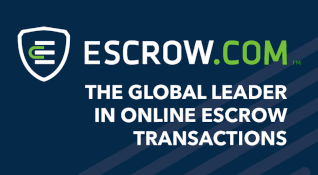Welcome to WebInvest Capital

Buying an online business website can be a lucrative and rewarding way to become an entrepreneur. However, it also involves a lot of risks and challenges. You need to find a reliable and profitable website that suits your interests and goals, negotiate a fair price with the seller, conduct thorough due diligence and research, and manage the website after the purchase.
Fortunately, you don’t have to do it all by yourself. WebInvest Capital is a private website investment firm and an entrepreneurial-minded venture capital investor for growth. We specialize in helping buyers and sellers of online businesses connect and complete successful transactions.
We offer a range of services and benefits for buyers of online businesses, that include:
- Due Diligence
- Research
- Negotiating
- Website Management
- Website Marketing
- Social Media Marketing
- SEO and SEM Solutions
WebInvest Capital has a team of experienced and professional online business brokers who have helped buyers find and acquire their dream online businesses. They have a proven track record of delivering high-quality results and customer satisfaction.
WebInvest Capital is the perfect partner for you. You can be confident that you will find the perfect business for your needs and achieve your financial goals.

It's important to carefully consider the risks before you buy an established website for passive income. If you do your research and take precautions, you can minimize the risks and increase your chances of success.
For more insight on becoming a better website investor, visit our LEARN page.
Unleashing the Value of Your Online Assets with the Included Services:

The first step in buying a business website is to conduct a market analysis. This will help you understand the demand for the website's products or services, as well as the competition.
We can help identify the best niches, industries, and trends for buying websites that have a high potential for growth and profitability. We utilize our tools to analyze the market demand, competition, and traffic sources of different websites.

Once you've conducted a market analysis, you need to determine the value of the website. This can be a complex process, as there are many factors to consider, such as the website's traffic, revenue, and age.
We not only utilize our website valuation for clients who are looking to sell their website, but we also use it in reverse as well when buying a website. It allows us to determine the fair value of a website based on its revenue, expenses, assets, liabilities, and growth rate. We are able to estimate the value of a website and compare it with similar listings on the market.

Once you agree on a price, we can help you acquire the website. This involves negotiating the terms of the sale and closing the deal. We can also help you with the transition process, such as transferring the domain name and hosting.
On your behalf, we can negotiate the best deal for buying a website, including the price, terms, and conditions. This also includes our due diligence process, such as verifying the ownership, traffic, revenue, and expenses of the website. Facilitate the payment and transfer of the website.
Frequent Asked Questions
Frequently, questions may come up before and after a buy or sell of an online business website. We have listed the most common questions below.
If you are not able to find your answers here please contact us. It's probably a question we haven't heard yet.
To know if you are choosing the right online business to buy, you should consider the following factors:
- Market demand: Is there a strong demand for the products or services that the business offers? You can assess this by looking at the business's traffic and sales data, as well as by researching the industry as a whole.
- Business model: Is the business's model sustainable and scalable? You should look for a business that has a clear competitive advantage and that is not reliant on any single customer or supplier.
- Financial health: Is the business profitable and generating cash flow? You should carefully review the business's financial statements to get a good understanding of its financial health.
- Management team: Is the business managed by experienced and qualified people? You should meet with the current owners and management team to assess their skills and experience.
- Value: Is the business being sold at a fair price? You should compare the business's valuation to other similar businesses that have been sold recently.
In addition to these factors, you should also consider your own personal preferences and goals. For example, are you interested in a business in a particular industry? Do you want to work with a certain type of customer? Do you have the skills and experience to manage the business?
Here are some specific questions you can ask yourself to assess whether a particular online business is right for you:
- Am I passionate about the products or services that the business offers?
- Do I understand the business model and how it generates revenue?
- Am I comfortable with the business's financial performance?
- Do I trust the current owners and management team?
- Am I willing to put in the time and effort to grow and manage the business?
If you can answer yes to all of these questions, then you are likely choosing the right online business to buy.
Here are some additional tips for choosing the right online business to buy:
- Get references from the current owners and management team.
- Negotiate the purchase price carefully.
- Get everything in writing, including the terms of the sale and the warranties.
- Have a lawyer review the purchase agreement before you sign it.
Buying an online business can be a great way to get started in business or to grow your existing business. However, it is important to do your due diligence and choose the right business for you.
Whether or not you should purchase an online business website that is trendy depends on a number of factors, including:
- Your own personal preferences and goals. Are you interested in a business in a particular industry? Do you want to work with a certain type of customer? Do you have the skills and experience to manage the business?
- The specific trend. Not all trends are created equal. Some trends are more sustainable than others. It is important to do your research and understand the trend before you invest in a business that is based on it.
- The competition. If there is a lot of competition in the trendy industry, it may be difficult to stand out from the crowd. You will need to have a strong marketing strategy and a unique value proposition in order to be successful.
- Your budget. Trendy businesses can be expensive to purchase and operate. You will need to make sure that you have the financial resources to support the business.
Here are some of the pros and cons of purchasing an online business website that is trendy:
Pros:
- Increased traffic and visibility. Trendy businesses often have a lot of traffic and visibility. This can be a good way to attract new customers and grow your business.
- Higher margins. Trendy businesses can often command higher margins than businesses in other industries. This is because customers are willing to pay a premium for products and services that are associated with a trend.
- Potential for high returns. If you are able to successfully manage a trendy business, you could potentially generate high returns on your investment.
Cons:
- Fluctuating demand. Demand for trendy products and services can fluctuate rapidly. This can make it difficult to plan for the future and manage the business.
- Copycat competitors. Once a trend becomes popular, it is likely that other businesses will start to copy it. This can make it difficult to maintain your competitive advantage.
- Short product lifecycles. Trendy products and services often have short lifecycles. This means that you will need to be constantly innovating in order to stay ahead of the competition.
Overall, whether or not you should purchase an online business website that is trendy is a decision that you need to make based on your own personal preferences and goals. If you are willing to take on the risks associated with trendy businesses, there is the potential to generate high returns. However, it is important to do your research and understand the trend before you invest in a business that is based on it.
Here are some additional tips for purchasing an online business website that is trendy:
- Make sure that the trend is sustainable. Not all trends are created equal. Some trends are more sustainable than others. It is important to do your research and understand the trend before you invest in a business that is based on it.
- Analyze the competition. If there is a lot of competition in the trendy industry, it may be difficult to stand out from the crowd. You will need to have a strong marketing strategy and a unique value proposition in order to be successful.
- Get a valuation from a qualified professional. Trendy businesses can be expensive to purchase. You will need to make sure that you are getting a fair price for the business.
- Have a plan for the future. Trendy businesses can be unpredictable. You will need to have a plan for the future in order to manage the business and stay ahead of the competition.
Owning an online business can be hard work, but it is also very rewarding. There are many different factors that can contribute to the amount of work involved, such as the industry, the size of the business, and the owner's own skills and experience.
Here are some of the specific tasks that are involved in owning an online business:
- Developing and marketing a product or service. This includes researching the market, creating a product or service, designing a website, and developing marketing strategies.
- Managing the website and customer relationships. This includes responding to customer inquiries, processing orders, and shipping products.
- Managing finances. This includes tracking income and expenses, paying taxes, and budgeting for growth.
- Growing the business. This may involve developing new products or services, expanding into new markets, or acquiring other businesses.
In addition to these tasks, online business owners also need to be constantly learning and adapting to new technologies and trends.
Here are some specific challenges that online business owners may face:
- Competition. There is a lot of competition in the online world, so it can be difficult to stand out from the crowd.
- Customer service. Online businesses need to provide excellent customer service in order to compete with brick-and-mortar businesses.
- Technology. Online businesses need to keep up with the latest technologies in order to stay competitive.
- Regulation. Online businesses need to comply with a variety of regulations, which can be time-consuming and expensive.
Overall, owning an online business can be a lot of work, but it is also a very rewarding experience. If you are passionate about your business and willing to put in the hard work, you can be successful.
Here are some tips for making owning an online business less hard:
- Automate as much as possible. There are many tools and software programs that can help you automate tasks such as marketing, customer service, and accounting.
- Hire a team. If you can afford it, hire a team of qualified people to help you with your business. This will free up your time so that you can focus on the most important tasks.
- Delegate tasks. If you don't have the budget to hire a team, you can still delegate tasks to others, such as friends, family members, or freelancers.
- Take breaks. It is important to take breaks from work, even if it is just for a few minutes each day. This will help you to stay refreshed and motivated.
Owning an online business can be a great way to achieve your financial and personal goals. However, it is important to be realistic about the amount of work involved and to be prepared to put in the effort.
If an online business that you purchased turns out to be not for you, there are a few things that you can do:
- Try to make it work. If you are still interested in the business, you can try to make it work by making changes to the business model, marketing strategy, or products and services. You may also need to invest more time and money into the business.
- Sell the business. If you are not interested in trying to make the business work, you can sell it to another buyer. You can sell the business through an online marketplace or by contacting potential buyers directly.
- Wind down the business. If you are unable to sell the business, you can wind it down. This involves closing the business and selling off the assets.
Here are some specific tips for each option:
- Try to make it work:
- Analyze the business's strengths and weaknesses.
- Identify areas where you can make improvements.
- Develop a plan to implement your improvements.
- Track your progress and make adjustments as needed.
- Sell the business:
- Market the business to potential buyers.
- Highlight the business's strengths and potential.
- Be realistic about the price.
- Use a lawyer to draft a sales agreement.
- Wind down the business:
- Notify your customers and suppliers that the business is closing.
- Sell off the business's assets.
- Pay off any outstanding debts.
- Close the business's bank accounts and website.
It is important to note that there may be some financial losses associated with selling or winding down a business. However, it is better to take these losses than to continue to invest in a business that is not for you.
Here are some additional tips for dealing with the situation:
- Don't be discouraged. It is not uncommon for businesses to fail. The important thing is to learn from your mistakes and move on.
- Seek help from others. There are a number of resources available to help business owners who are struggling. You can talk to other business owners, mentors, or advisors.
- Don't give up on your dreams. Just because one business didn't work out doesn't mean that you can't be successful in business. Learn from your mistakes and try again.
Yes, you are generally required to file taxes on your new online business website, even if you are just starting out and not making a lot of money. This is because the IRS considers all businesses, regardless of size or industry, to be taxable entities.
The specific type of tax return that you need to file will depend on the structure of your business. If you are a sole proprietorship, you will need to file Schedule C with your personal income tax return. If you are a partnership or corporation, you will need to file a separate tax return for your business.
Even if you are not making a profit, you may still be required to file taxes. This is because the IRS taxes businesses on their net income, which is the difference between their revenue and expenses. If your expenses are greater than your revenue, you will have a net loss. However, you will still need to file a tax return to report your losses.
Here are some specific types of taxes that you may need to pay on your new online business website:
- Income tax: This is the most common type of tax that businesses pay. Income tax is calculated on the business's net income.
- Self-employment tax: This tax is similar to Social Security and Medicare taxes, but it is paid by self-employed individuals. Self-employment tax is calculated on the business's net income.
- Sales tax: This tax is imposed on the sale of goods and services. Sales tax rates vary from state to state.
- Employment taxes: If you have employees, you will be responsible for paying employment taxes, such as Social Security and Medicare taxes, and federal unemployment tax.
It is important to consult with a tax advisor to determine the specific taxes that you need to pay on your new online business website.
Here are some tips for filing taxes on your new online business website:
- Keep good records. It is important to keep good records of your business income and expenses. This will help you to accurately calculate your taxes and avoid any penalties.
- Estimate your taxes quarterly. If you expect to owe more than $1,000 in taxes in a year, you will need to estimate your taxes quarterly and pay estimated tax installments.
- File your tax return on time. The deadline for filing your tax return is typically April 15th of each year. If you cannot file your tax return by the deadline, you may be able to file for an extension.
Filing taxes on your new online business website can be a daunting task, but it is important to do so correctly. By following the tips above, you can ensure that you are complying with all applicable tax laws.
The amount of time you should keep an online business if profits have not increased depends on a number of factors, including:
- The industry you are in. Some industries are more competitive and require more time and investment to be successful.
- The size of your business. Smaller businesses may have more difficulty scaling and increasing profits.
- Your own personal circumstances. Are you willing to put in the time and effort to make your business successful?
Here are some general guidelines:
- If you have not seen any profits in the first year, it is time to start reassessing your business plan. Is your product or service in demand? Are you targeting the right market? Are you marketing your business effectively?
- If you have seen some profits in the first year, but they have not increased significantly in the second year, it is time to start making some changes. This may involve changing your marketing strategy, developing new products or services, or expanding into new markets.
- If you have seen profits increase in the second year, but they have not continued to increase in the third year, it is time to start thinking about whether your business is sustainable. Is there a clear path to profitability? Are you able to compete with other businesses in your industry?
If you have not seen any profits in three years, it is time to seriously consider whether your business is worth keeping. There are many other businesses that you could start with a better chance of success.
Here are some specific things you can do to try to increase profits:
- Analyze your financial statements. This will help you to identify areas where you can cut costs or increase revenue.
- Make changes to your marketing strategy. Are you targeting the right market? Are you using the right channels to reach your target customers?
- Develop new products or services. This is a great way to attract new customers and increase revenue.
- Expand into new markets. This can help you to reach a larger audience and increase sales.
If you have made changes to your business and profits are still not increasing, it may be time to consider closing your business.
It is important to remember that there is no one-size-fits-all answer to this question. The best way to decide how long to keep your online business is to carefully assess your own situation and make a decision that is right for you.
Yes, you could turn around and sell a website after buying it. This is a common practice in the online business world. There are a number of reasons why someone might buy a website and then sell it shortly after. For example, they may have bought the website at a low price and then realized that they can sell it for a profit. They may also have bought the website with the intention of improving it and then selling it for a higher price.
There are a number of factors that can affect the value of a website, including:
- Traffic: The more traffic a website has, the more valuable it is.
- Revenue: The more revenue a website generates, the more valuable it is.
- Domain authority: Domain authority is a measure of how well a website is known and respected by search engines. Websites with high domain authority are more valuable.
- Industry: Websites in certain industries are more valuable than websites in other industries. For example, websites in the tech industry are often more valuable than websites in the retail industry.
If you are considering buying a website with the intention of reselling it, it is important to do your research and make sure that the website is worth the investment. You should also consider the time and effort that it will take to improve the website and make it more valuable.
Here are some tips for selling a website:
- Market the website to potential buyers. You can do this by listing the website on online marketplaces or by contacting potential buyers directly.
- Highlight the website's strengths. When marketing the website, be sure to highlight its strengths, such as its traffic, revenue, domain authority, and industry.
- Be realistic about the price. Don't expect to sell the website for more than it is worth.
- Use a lawyer to draft a sales agreement. This will help to protect you and the buyer in the event of any problems.
Selling a website can be a profitable way to make money, but it is important to do your research and be realistic about the process.
Yes, there are a number of costs associated with running a business website. These costs can vary depending on the size and complexity of your website, as well as the features and functionality that you need.
Here are some of the most common costs associated with running a business website:
- Domain name registration: A domain name is your website's address on the internet. You can register a domain name for a few dollars per year.
- Web hosting: Web hosting is the service that stores your website's files and makes them accessible to visitors. Web hosting plans typically range from a few dollars to hundreds of dollars per month.
- Website design and development: If you don't have the skills or resources to design and develop your own website, you will need to hire a web designer or developer. Web design and development costs can range from a few thousand dollars to tens of thousands of dollars.
- Website maintenance and updates: Even if you have a well-designed and developed website, you will still need to maintain and update it on a regular basis. This includes tasks such as fixing security vulnerabilities, adding new content, and optimizing your website for search engines. Website maintenance and updates can cost a few hundred dollars per month or more.
- Marketing and advertising: If you want to attract visitors to your website, you will need to invest in marketing and advertising. This can include costs such as pay-per-click advertising, social media marketing, and email marketing. Marketing and advertising costs can vary depending on your budget and the strategies that you use.
In addition to these costs, you may also need to budget for other expenses, such as:
- Security software: Security software is essential for protecting your website from hackers and malware. Security software can cost a few hundred dollars per year or more.
- Backups: It is important to back up your website regularly in case of data loss or corruption. Backups can be stored on-site or in the cloud. Backup costs can vary depending on the size and complexity of your website.
- Customer support: If you sell products or services on your website, you will need to provide customer support. This can include costs such as hiring customer support staff or using a customer support software. Customer support costs can vary depending on the size and complexity of your business.
The total cost of running a business website can vary widely depending on the factors mentioned above. However, it is important to budget for these costs in order to ensure that your website is successful.
WebInvest Capital: Safeguarding Your Personal Information and Funds
WebInvest Capital is a online investment platform that is committed to safeguarding the personal information and funds of its clients. The company uses a variety of security measures to protect its clients' data, including:
- Encryption: WebInvest Capital encrypts all sensitive data, such as passwords, credit card numbers, and Social Security numbers, using industry-standard encryption protocols. This means that even if hackers are able to access the company's servers, they will not be able to read the data.
- Firewalls: WebInvest Capital uses firewalls to protect its networks from unauthorized access. Firewalls are security measures that monitor and control incoming and outgoing network traffic.
- Intrusion detection and prevention systems: WebInvest Capital uses intrusion detection and prevention systems (IDS/IPS) to identify and block malicious activity. IDS/IPS systems monitor network traffic for suspicious activity and can take steps to block or mitigate attacks.
- Regular security audits: WebInvest Capital conducts regular security audits to identify and fix any vulnerabilities in its systems. This helps to ensure that the company's security measures are effective and that its clients' data is protected.
In addition to these security measures, WebInvest Capital also has a number of policies in place to protect its clients' funds. For example, the company uses segregated accounts to hold its clients' funds. This means that the company's own funds are kept separate from its clients' funds. This helps to protect clients' funds in the event that the company becomes insolvent.
WebInvest Capital also has a number of insurance policies in place to protect its clients' funds. For example, the company has a cyber liability insurance policy that protects it from financial losses caused by cyberattacks.
Overall, WebInvest Capital takes a number of steps to safeguard the personal information and funds of its clients. The company uses a variety of security measures, including encryption, firewalls, IDS/IPS systems, and regular security audits. WebInvest Capital also has a number of policies in place to protect its clients' funds, such as segregated accounts and insurance policies.
Here are some specific examples of how WebInvest Capital safeguards its clients' personal information and funds:
- When clients create an account with WebInvest Capital, they are required to create a strong password and enable two-factor authentication. This helps to protect their accounts from unauthorized access.
- WebInvest Capital stores all client data in secure data centers that are protected by physical and electronic security measures. This helps to protect client data from unauthorized access and theft.
- WebInvest Capital uses a variety of fraud detection and prevention measures to protect client funds. For example, the company monitors all transactions for suspicious activity and can block or reverse transactions that are suspected of being fraudulent.
- WebInvest Capital has a dedicated team of security professionals who are responsible for protecting the company's systems and client data. This team regularly reviews the company's security measures and implements new measures as needed.
WebInvest Capital is committed to providing its clients with a safe and secure investment experience. The company uses a variety of security measures to protect its clients' personal information and funds.
The amount of time and technical skills required to manage a business website depends on a number of factors, including the size and complexity of the website, the industry, and the level of activity on the website.
Time
Here is a general breakdown of the time commitment required for different aspects of website management:
- Content updates: This can be a relatively small time commitment, or it can be more significant depending on the size of the website and the frequency of updates. For example, a small business with a simple website may only need to spend a few hours per week updating content. A large business with a complex website may need to spend several hours per day on content updates.
- Technical maintenance: This includes tasks such as backing up the website, monitoring performance, and ensuring that the website is secure. Technical maintenance can be a relatively small time commitment, or it can be more significant depending on the size and complexity of the website. For example, a small business with a simple website may only need to spend a few hours per month on technical maintenance. A large business with a complex website may need to spend several hours per week on technical maintenance.
- Marketing and analytics: This includes tasks such as tracking website traffic, analyzing data, and optimizing the website for search engines. Marketing and analytics can be a significant time commitment, especially for businesses that are actively trying to grow their website traffic and online sales.
Technical skills
The following technical skills are essential for managing a business website:
- Content management system (CMS): A CMS is a software application that makes it easy to create and manage a website. Popular CMS platforms include WordPress, Drupal, and Joomla.
- HTML and CSS: HTML and CSS are the programming languages used to create and style web pages.
- Security: Website security is essential to protect the website from hackers and malware. Website managers need to have a basic understanding of website security best practices.
In addition to the above skills, website managers may also need to have knowledge of other technical areas such as web hosting, server administration, and search engine optimization (SEO).
Overall
The amount of time and technical skills required to manage a business website can vary significantly depending on the factors mentioned above. However, most businesses will need to invest some time and resources into managing their website in order to ensure that it is up-to-date, secure, and effective.
Here are some tips for managing a business website with limited time and technical skills:
- Use a CMS platform that is easy to use and has a large community of users.
- Hire a web developer to help you set up and maintain your website.
- Automate as many tasks as possible, such as backups and security updates.
- Focus on the most important tasks, such as content updates and marketing.
- outsource non-essential tasks to freelancers or agencies.

